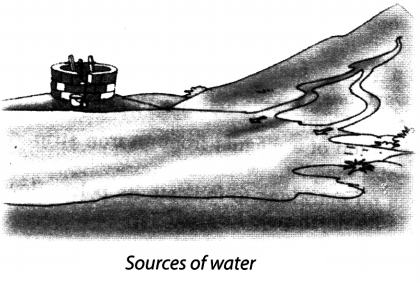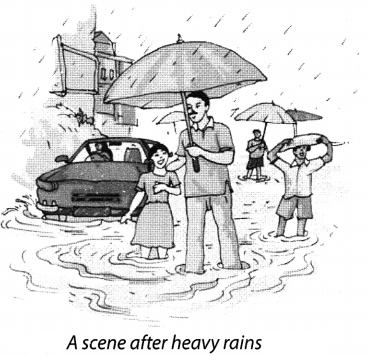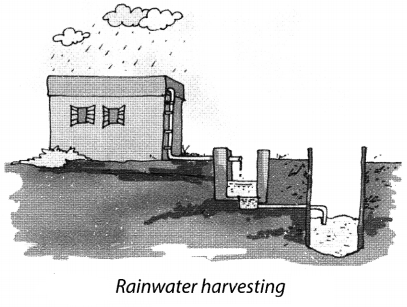On this page, you will find Water Class 6 Notes Science Chapter 14 Pdf free download. CBSE NCERT Class 6 Science Notes Chapter 14 Water will seemingly help them to revise the important concepts in less time.
CBSE Class 6 Science Chapter 14 Notes Water
Water Class 6 Notes Understanding the Lesson
1. Water is one of the elixir of life.
2. Nearly 70 per cent of Earth’s surface is covered with water but only 2.5 per cent of it is fresh.
3. We need water for drinking, cooking food, washing utensils, brushing teeth, watering plants, etc.

4. Flowing water is used for producing electricity in hydroelectric power plants.
5. The place from where we get water is called a source of water.
6. The water which we use is obtained from sources such as rivers, lakes, ponds, wells and springs.
7. The two main sources of water on land are glaciers/snow mountains and rain.
8. The largest sources of water on earth are oceans.
9. Water is considered as a renewable resource on the earth.

10. Being highly saline ocean water is not fit for drinking, other domestic purposes, agriculture or industrial uses.
11. The continuous circulation of water from earth’s surface to atmosphere, and from atmosphere back to earth is called water cycle in nature.
12. The process in which a liquid changes to its gaseous state in room temperature also is called evaporation.
13. The loss of water from plants as water vapour through the pores of their leaves is called transpiration.
14. When water vapours rises higher, it cools down, due to the lower temperature at higher altitudes, to form water droplets. This process is known as condensation. When these tiny droplets come together, form clouds.
15. The water which had escaped from the earth as vapour returns to the earth in form of
- rain
- snowfall
- hail.
16. Most of the water that falls on the earth in the form of rain flows down to the oceans. Some of it percolates down into the soil and is available to us as groundwater, well water, tube well water, etc.
17. Process in which water passes through different layers of solid is called infiltration.
18. When it rains heavily for a long time, we get excess rainfall resulting in too much water all around. This causes floods.
19. A prolonged period of no rains or very low rains, all around, cause shortage of water leading to drought.

20. It is very important that water should be used carefully. We should take care that water should not get wasted.
21. The various ways to conserve water or minimise the wastage of water at home are:
- Turn off the tap immediately after use.
- Take bath by filling water in a bucket.
- Do not use a full flush from the cistern in the toilet. Water harvesting is the activity of collection of rainwater directly by various means.
22. Harvested water can either be used immediately or it can be stored for later use.

23. The two techniques of rainwater harvesting are:
- Roof top rainwater harvesting.
- Open Tank/Drain water harvesting.
Class 6 Science Chapter 14 Notes Important Terms
Cloud: The mass of tiny droplets formed by the condensation of water vapour which we see floating high in the atmosphere is called cloud.
Condensation: The changing of water vapour into water on cooling is called condensation.
Drought: An extended period of dryness is called drought.
Evaporation: The process of conversion of water into water vapour is called evaporation.
Flood: An overflow of a large amount of water beyond its normal limits especially over what is normally dry land is called flood.
Groundwater: The water which percolates through the upper layer of the earth’s surface and gets collected on the solid rocks beneath is called groundwater.
Hail: The frozen water from the clouds which falls on the earth in the form of small, round pieces of ice is called hail.
Ocean: The biggest body of water surrounding the 70 per cent of earth’s surface is called ocean.
Rainwater harvesting: The activity of collecting rainwater directly and store it in big tanks for later use is called rainwater harvesting.
Snow: The frozen or solid form of water is called snow.
Water vapour: The gaseous form of the water is called water vapour.
Water cycle: The continuous circulation of water from the earth’s surface to atmosphere and from the atmosphere back to the earth is called water cycle.